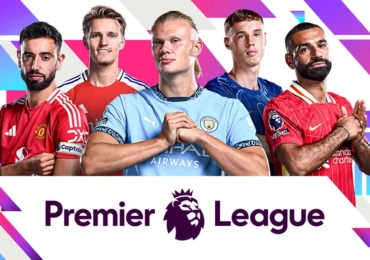Explore how Eredivisie produces world-class football talent and fuels global league football with its youth development strategy.
Why Eredivisie Is Europe’s Talent Incubator
In the world of league football, no league punches above its weight in developing young talent quite like the Eredivisie. While the Premier League and La Liga dominate global headlines for massive transfers and superstar performances, the Dutch Eredivisie quietly maintains its reputation as the talent factory of Europe.
From Johan Cruyff and Ruud Gullit to Frenkie de Jong and Cody Gakpo, the Eredivisie has continuously produced elite-level players who go on to shine at the highest levels. But what makes this league such a consistent incubator of world-class talent?
In this article, we explore the structural, cultural, and tactical foundations that make the Eredivisie an essential pillar in the global league Dis88 ecosystem.
🇳🇱 A Culture Rooted in Youth Development
The Dutch football system has always emphasized total football, technique, intelligence, and positional fluidity. Unlike other European leagues where youth development is often secondary to short-term results, Eredivisie clubs prioritize:
- Giving young players meaningful minutes
- Developing players tactically and technically
- Integrating academy systems into the first team
Ajax, PSV Eindhoven, and Feyenoord lead the charge, but even smaller clubs like AZ Alkmaar and FC Utrecht contribute significantly to the country’s youth pipeline.
🧠 Tactical Intelligence Over Physicality
In a world where physical attributes dominate scouting reports, Dutch clubs maintain a focus on tactical IQ and technical skill. Eredivisie matches tend to be open, possession-based, and fluid—ideal conditions for nurturing intelligent footballers.
Rather than teaching players to simply “run more” or “fight harder,” coaches in the Netherlands encourage:
- Understanding spatial awareness
- Decision-making under pressure
- Mastery of multiple positions
This makes Eredivisie players especially adaptable when moving to larger leagues that demand versatility.
⚙️ Clubs That Build, Not Just Buy
Eredivisie clubs operate on modest budgets compared to European giants. As a result, they have developed a self-sustaining model:
- Scout or produce youth talent
- Develop them in the first team
- Sell them at peak value
- Reinvest into the academy
This cycle is not a weakness—it’s a feature. It’s what allows clubs like Ajax to field Champions League-level sides every few years despite losing top players annually.
Recent Examples:
- Frenkie de Jong → Ajax to Barcelona
- Matthijs de Ligt → Ajax to Juventus, now Bayern
- Cody Gakpo → PSV to Liverpool
- Santiago Giménez → Feyenoord’s star striker eyed by top European clubs
🏟️ Real Opportunities for Young Players
The average debut age in the Eredivisie is much lower than in Europe’s top five leagues. At Ajax and PSV, it’s common for 17- or 18-year-olds to feature in key matches. Clubs are not afraid to:
- Start teenagers in European competitions
- Hand the captain’s armband to 20-year-olds
- Trust their academies in pressure situations
This creates a high-trust, low-fear environment where young footballers can develop organically without the pressure of immediate perfection.
🔍 The Best Talent Spotters in Europe
Dutch clubs are also excellent talent identifiers, not just developers. They routinely scout and sign young prospects from Africa, South America, and lesser-known European academies, providing them with a launchpad into elite football.
Notable imports that became global stars via Eredivisie:
- Luis Suárez (Nacional → Groningen → Ajax → Liverpool)
- Romário (Brazil → PSV)
- Hirving Lozano (Mexico → PSV → Napoli)
This strategy has made Eredivisie not just a local incubator, but an international finishing school for rising stars.
🧑🏫 Coaching Philosophy That Nurtures, Not Destroys
Dutch coaching emphasizes player growth, not just system obedience. Managers are often former players who understand the development cycle and prioritize long-term improvement over short-term gain.
Key Figures:
- Arne Slot (Feyenoord) – Known for balancing tactical structure with player freedom
- Peter Bosz (PSV) – Advocates for aggressive, technical football
- John van ‘t Schip (Ajax) – Focused on rebuilding Ajax’s youth-first identity
These coaches understand that mistakes are part of the learning curve and give youngsters the freedom to fail forward.
📊 Eredivisie’s Youth-First Data (2025 Season)
Recent numbers from the ongoing 2024–25 Eredivisie season show the league’s commitment to youth:
- 41% of total minutes played by players under 23
- Eredivisie has the youngest average squad age in Europe’s top 10 leagues
- 7 players under 21 from Eredivisie called to the Dutch senior team
- Ajax, AZ, and Feyenoord field the most U20 players in UEFA club competitions
This proves Eredivisie isn’t just producing talent—it’s living its philosophy every week.
🌍 The Global Impact of Eredivisie Talent
What happens in Eredivisie doesn’t stay in Eredivisie. Players who start in the Dutch league go on to become:
- National team leaders
- Champions League performers
- Top transfers commanding huge fees
These players bring Eredivisie’s DNA of technical skill and intelligence into every corner of global league football.
📈 Eredivisie as a Feeder League: Good or Bad?
Some argue that constantly selling talent weakens Eredivisie clubs in European competition. While it’s true that Dutch clubs often lose stars quickly, they also regenerate faster than most leagues.
The result?
- Sustainability
- Continuous youth promotion
- Excitement for fans seeing the next big thing
Rather than resisting its role, Eredivisie has embraced being a feeder league—and turned it into a strength.
🗣️ Conclusion: The Cradle of Modern League Football
The Eredivisie remains one of the most important ecosystems in global football. Its focus on youth, coaching philosophy, and player development offers a blueprint for leagues that want sustainability and identity.
As football becomes more commercialized, Eredivisie stands tall as a beacon of pure development, proving that with the right environment, philosophy, and opportunity, young players can still reach the top through hard work and tactical education.
Whether you’re watching Jorrel Hato calmly pass out from the back, or Isaac Babadi gliding past defenders in Eindhoven, remember: this is where future legends are born.
Support development. Support youth. Support football.


